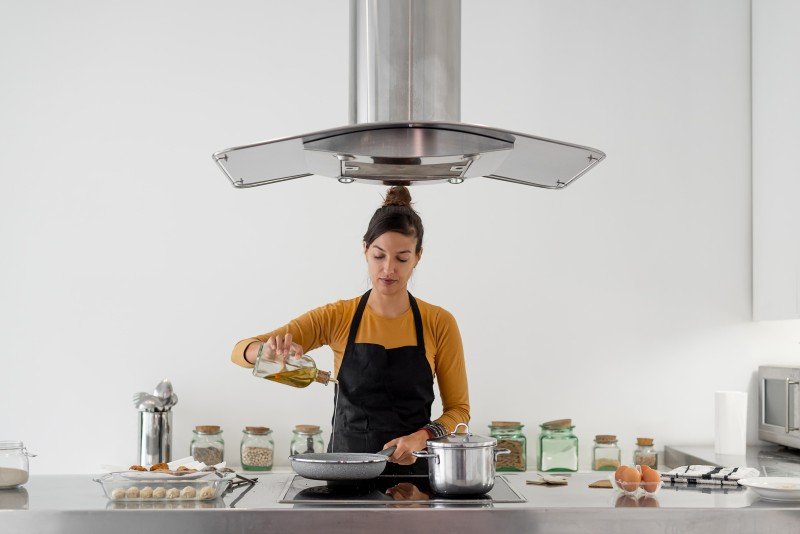15 Pinterest Boards That Are The Best Of All Time About Sales Ovens
The Comprehensive Guide to Sales Ovens: Understanding Their Importance, Types, and Best Practices
Sales ovens, a classification of business cooking devices, are key gamers in the culinary and foodservice industry. These devices, designed to prepare food in large amounts efficiently, are important in dining establishments, catering services, and other food establishments. This short article looks into the significance of sales ovens, their types, and best practices for picking and using them efficiently.
What Are Sales Ovens?
Sales ovens, broadly specified, are cooking devices utilized primarily in industrial cooking areas to cook, bake, or heat various food products at scale. Their style allows them to handle greater volume cooking compared to basic residential ovens. Provided the nature of food service, sales ovens frequently incorporate innovative technologies that promote speed, performance, and even cooking.
Value of Sales Ovens in the Food Industry
Sales ovens play a critical function in food production for lots of reasons:
- Efficiency: Sales ovens can prepare food more rapidly and uniformly than conventional ovens, permitting chefs to prepare meals in less time.
- Consistency: With precise temperature controls, sales ovens make sure that the food is cooked uniformly each time, keeping quality throughout countless portions.
- Versatility: Many sales ovens can manage various cooking methods consisting of baking, roasting, broiling, and even steaming, making them ideal for varied menus.
- Energy Savings: Modern sales ovens are typically designed to be energy-efficient, reducing operational expenses for companies.
Kinds Of Sales Ovens
The marketplace offers a variety of sales ovens, each matched for specific cooking requirements and kinds of food. Here are the most typical types:
Type of Oven
Description
Best For
Convection Ovens
Use a fan to distribute hot air, making sure even cooking.
Baking and roasting items.
Combi-Ovens
A mix of convection and steam cooking, supplying flexibility in cooking techniques.
Diverse menus needing steaming and baking.
Conveyor Ovens
Use a moving belt to continuously prepare food, suitable for high-volume operations.
Junk food and pizza.
Deck Ovens
Feature different compartments (decks) that can be independently controlled, using high efficiency.
Artisan bread and pastries.
Rotisserie Ovens
Designed to slowly roast meat on a spit, providing tender and juicy results.
Roasted meats.
Selecting the Right Sales Oven
Picking the suitable sales oven for a specific company needs consideration of several aspects:
- Volume Needs: Assess the volume of food that needs to be prepared. Higher volume means going with conveyor or combi-ovens.
- Menu Diversity: Understanding what type of meals will be prepared can assist the selection procedure. For instance, a bakery might require a deck oven, while a restaurant may benefit from a convection oven.
- Space Availability: Measure kitchen space to make sure the ovens fit correctly and have actually required ventilation.
- Spending plan: Commercial ovens can vary considerably in cost, so develop a budget that thinks about long-term operational cost savings.
- Energy Efficiency: Opt for ovens that have energy scores to keep utility costs manageable.
Best Practices for Using Sales Ovens
Successfully running a sales oven involves more than simple use. Here are some best practices to remember:
Regular Maintenance: Schedule routine maintenance to tidy and inspect the functionality of the oven. This ensures durability and performance.
Preheating: Always pre-heat the oven to the wanted temperature level before positioning food inside for consistent cooking outcomes.
Utilize Thermometers: For precision, use an oven thermometer to ensure that temperature levels stay constant, particularly for baking.
Follow Cooking Times: Adhere to recommended cooking times based on the kind of food being prepared. Click Link might be necessary for various ovens.
Avoid Overcrowding: Ensure sufficient space around food products in the oven to enable for correct air flow.
The Future of Sales Ovens
As innovation advances, so do the abilities of sales ovens. Innovations such as clever innovation, energy-efficient styles, and enhanced security features are ending up being more prominent. These improvements promise to enhance cooking efficiency while likewise meeting sustainability objectives.
FAQs about Sales Ovens
Q1: How do I clean my sales oven?
A: Regular cleaning involves removing any food debris, wiping down surfaces with non-corrosive cleaners, and following specific cleansing recommendations from the maker.
Q2: What's the life-span of an industrial oven?
A: Typically, a well-kept business oven can last anywhere from 10 to 20 years, depending on usage and maintenance.
Q3: Can sales ovens be used for baking?
A: Yes, numerous kinds of sales ovens, especially convection and deck ovens, are specifically designed for baking a variety of products.
Q4: Are there energy-efficient options for sales ovens?
A: Yes, several producers offer energy-efficient models that reduce energy usage without sacrificing performance.
Q5: How often should I perform upkeep on my sales oven?
A: It's suggested to perform routine maintenance checks monthly or quarter, depending on use levels. In addition, a detailed inspection must take place at least annually.
Sales ovens are important in the contemporary cooking landscape. Their ability to cook large quantities of food efficiently makes them necessary for dining establishments, catering services, and other food facilities. By understanding the different types, choosing the right oven, and sticking to best practices, food service organizations can optimize their cooking processes, enhance their offerings, and eventually delight their consumers with outstanding cooking creations.
